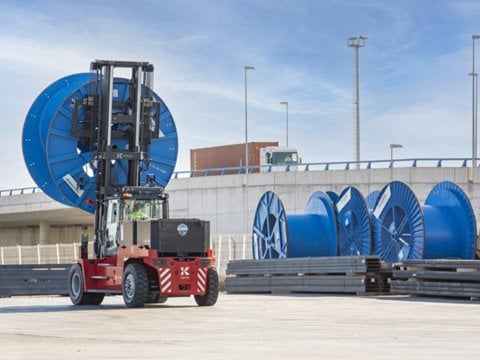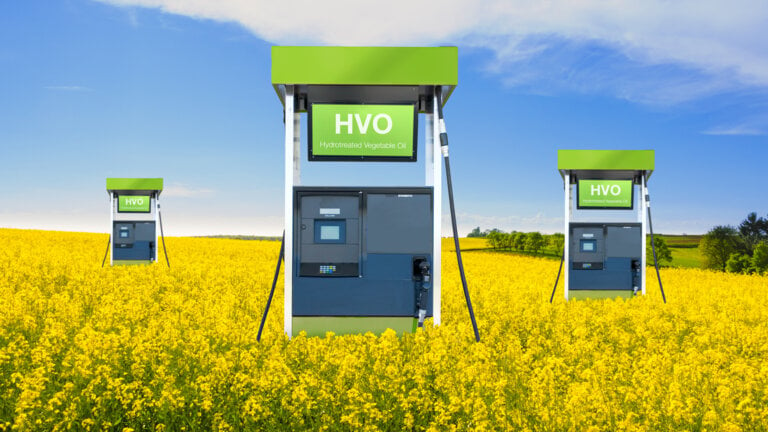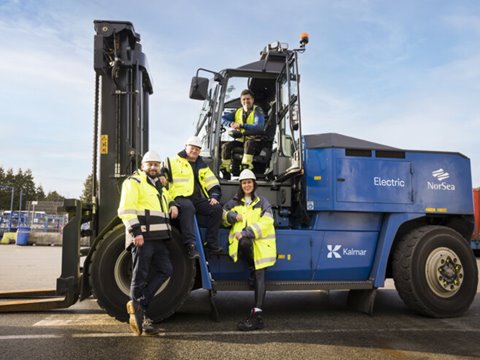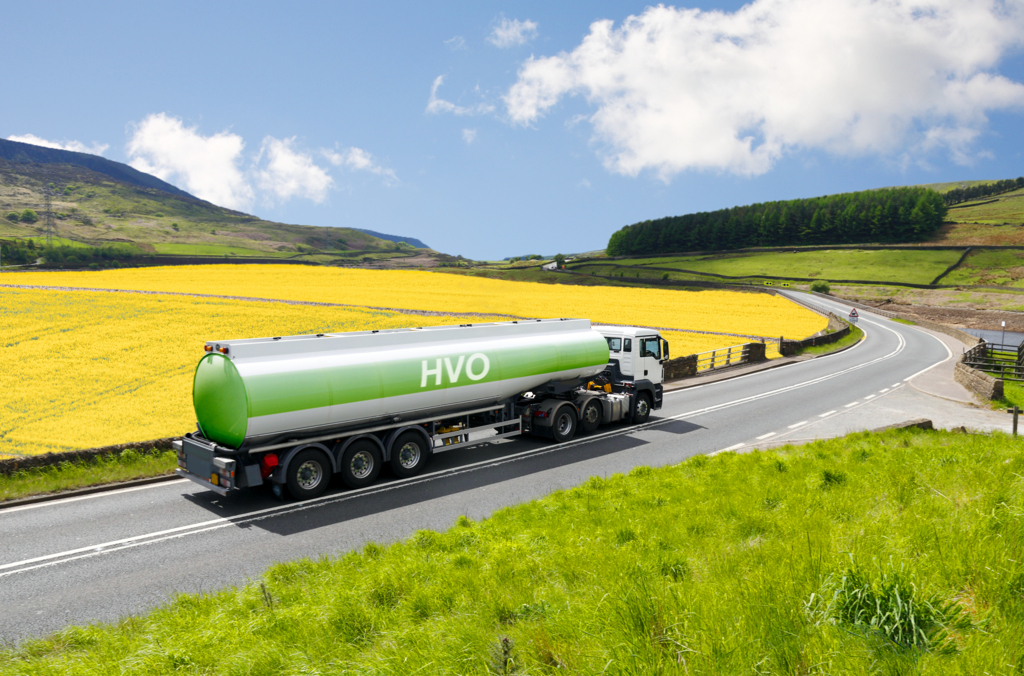





Shares
HVO Fuel - Renewable Diesel
Reduce your carbon emissions

By switching from traditional diesel fuel to HVO you can reduce your carbon emissions immediately, in fact by up to 90%. Most Kalmar equipment can either switch to HVO straight away or with a slight modification. It’s a very small step that can have a big impact on your journey towards Net Zero.
Reduce your fuel emissions by up to 90%
- HVO, or hydrotreated vegetable oil is a direct substitute for both red and white diesel.
- Made from 100% renewable raw materials like vegetable oils, animal fats and oils which are often waste products from the food industry.
- HVO is completely sustainable and reduces net CO2 greenhouse gases by up to 90%. Which can have a huge impact on reducing your site’s carbon emissions while your equipment is in operation.
- In Europe, the production of HVO is covered under the EN15940 Standard, and with other standards in place around the world it is easily substituted for diesel fuel without having any impact on the efficiency of your equipment.

A proven option to diesel
HVO has been used as a blended product for over 15 years and as a 100% substitute for diesel for over a decade. Proving itself to be a safe, sustainable and high performing fuel option to diesel. All major engine manufacturers including Volvo, Cummins and Agco endorse the use of HVO and it has been recognised to improve engine performance and longevity.
Can I use HVO with any Kalmar machine?
HVO can be used immediately with Kalmar Straddle Carriers fitted with Volvo or Agco engines. Kalmar Reachstackers, Forklifts, Terminal Tractors and Empty Container Handlers fitted with Volvo and Cummins Stage 3, 4 & 5 engines are all now certified to use HVO instead of traditional diesel fuel.
If you own a certified machine, contact your local support team to check if your equipment needs a minor upgrade before starting to use HVO.
To see a full list of certified Kalmar equipment that can use HVO click here.
Emission saving calculator

Emissions using 0% HVO100
0 Tons
CO2/Year
Emissions using 100% diesel
0 Tons
CO2/Year
You need to accept targeting cookies before you can view the YouTube content. Those cookies may be used to show you relevant content and adverts. Click the button “Cookie Settings” to manage your preference.
You need to accept targeting cookies before you can view the YouTube content. Those cookies may be used to show you relevant content and adverts. Click the button “Cookie Settings” to manage your preference.
You need to accept targeting cookies before you can view the YouTube content. Those cookies may be used to show you relevant content and adverts. Click the button “Cookie Settings” to manage your preference.











